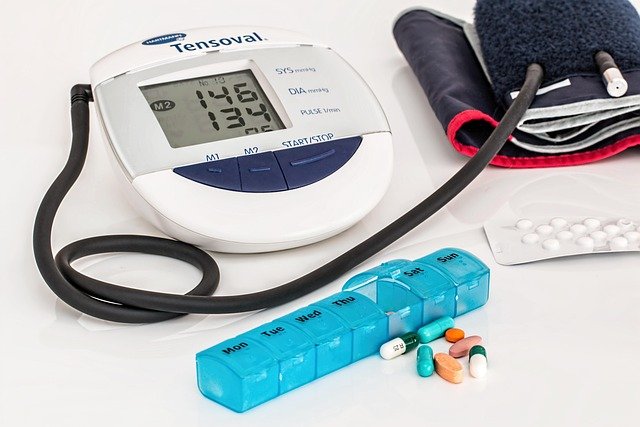Understanding Thyroid Health and Early Warning Signs
Thyroid issues can affect your energy, mood, weight, and more. Taking too much thyroid medication? Spot the warning signs early and learn when it is time to talk to your doctor. Understand common symptoms, available treatments, and how to manage thyroid conditions effectively.

Signs and Symptoms of Thyroid Problems
Thyroid disorders manifest differently depending on whether your gland is overactive or underactive. Hyperthyroidism, where the thyroid produces excess hormones, often causes rapid heartbeat, unexplained weight loss, increased appetite, nervousness, and difficulty sleeping. You might also experience excessive sweating, trembling hands, and heat intolerance.
Hypothyroidism, on the other hand, occurs when your thyroid doesn’t produce enough hormones. Common symptoms include fatigue, weight gain, depression, dry skin, hair loss, and feeling cold frequently. You may also notice muscle weakness, constipation, and difficulty concentrating. Both conditions can affect your menstrual cycle and fertility.
Taking Too Much Thyroid Medication Warning Signs
For those already receiving thyroid treatment, taking excessive medication can lead to symptoms similar to hyperthyroidism. Warning signs include racing heart, chest pain, shortness of breath, and irregular heartbeat. You might experience anxiety, irritability, insomnia, and excessive sweating.
Physical symptoms of overmedication include hand tremors, muscle weakness, and unexplained weight loss despite normal eating habits. Some people report feeling jittery or restless, similar to consuming too much caffeine. Digestive issues like diarrhea and increased bowel movements are also common indicators that your medication dose may be too high.
When to Speak with Your Doctor About Thyroid Levels
Regular monitoring of thyroid levels is crucial for maintaining optimal health. Schedule an appointment with your healthcare provider if you experience persistent symptoms lasting more than two weeks. This includes unexplained changes in weight, energy levels, mood, or sleep patterns.
If you’re currently taking thyroid medication, contact your doctor if you notice any signs of overmedication or if your symptoms return despite treatment. Changes in other medications, pregnancy, or significant life stressors can affect thyroid function and may require dosage adjustments. Additionally, if you have a family history of thyroid disease or autoimmune conditions, discuss regular screening with your healthcare provider.
Treatments for Overactive or Underactive Thyroid
Treatment approaches vary significantly depending on your specific condition and its severity. For hypothyroidism, the most common treatment involves daily hormone replacement therapy using synthetic thyroid hormones like levothyroxine. This medication helps restore normal hormone levels and must typically be taken for life.
Hyperthyroidism treatment options include anti-thyroid medications that reduce hormone production, radioactive iodine therapy to destroy overactive thyroid tissue, or surgical removal of part or all of the thyroid gland. Beta-blockers may be prescribed to manage symptoms like rapid heartbeat and anxiety while other treatments take effect.
Cost Considerations for Thyroid Treatment
Understanding the financial aspects of thyroid treatment helps you make informed healthcare decisions. Generic thyroid medications are typically more affordable than brand-name options, while specialized treatments and procedures vary significantly in cost. Insurance coverage often affects out-of-pocket expenses for both medication and monitoring tests.
| Treatment Type | Estimated Monthly Cost | Insurance Coverage | Notes |
|---|---|---|---|
| Generic Levothyroxine | $10-30 | Usually covered | Most common treatment |
| Brand-name Synthroid | $50-100 | May require prior authorization | Preferred by some patients |
| Anti-thyroid medication | $20-60 | Generally covered | For hyperthyroidism |
| Thyroid function tests | $100-200 | Typically covered | Required every 3-6 months |
| Endocrinologist consultation | $200-400 | Depends on plan | Specialist care |
Prices, rates, or cost estimates mentioned in this article are based on the latest available information but may change over time. Independent research is advised before making financial decisions.
Managing Your Thyroid Health Long-term
Successful thyroid management requires consistent medication adherence, regular monitoring, and lifestyle modifications. Take your medication at the same time daily, preferably on an empty stomach, and avoid foods or supplements that may interfere with absorption. Maintain regular follow-up appointments to monitor your thyroid levels and adjust treatment as needed.
Stress management, adequate sleep, and regular exercise can support overall thyroid health. Some people find that dietary changes, such as ensuring adequate iodine intake while avoiding excessive amounts, help maintain optimal thyroid function. However, always consult your healthcare provider before making significant lifestyle changes or starting new supplements.
Thyroid health significantly impacts your overall well-being, and early recognition of warning signs is crucial for effective treatment. Whether you’re experiencing initial symptoms or managing existing treatment, staying informed about your condition and maintaining open communication with your healthcare provider ensures the best possible outcomes. Remember that thyroid disorders are highly treatable with proper medical care, and most people can maintain normal, healthy lives with appropriate management.
This article is for informational purposes only and should not be considered medical advice. Please consult a qualified healthcare professional for personalized guidance and treatment.




